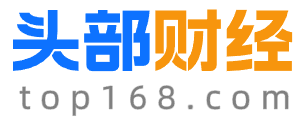
AsianFin -- Microsoft's ongoing wave of layoffs affecting thousands worldwide has escalated concerns over employee mental health, following reports of multiple suicides linked to the company's recent job cuts.
According to the tech employment forum The Layoff, around 6,000 Microsoft employees were laid off in mid-May, representing about 3% of the company's global workforce of 228,000. Tragically, three employees across different countries reportedly took their own lives amid the turmoil, with at least one case allegedly involving severe mistreatment by management. Microsoft has not yet commented on these reports.
"This pervasive fear and cold corporate layoff culture quietly erode lives," a forum user wrote. "If you are struggling, remember your worth is never defined by your job. You are not alone, and help is always available."
This latest round is Microsoft's largest since the 2023 layoffs that cut 10,000 jobs. The tech giant joins a broader wave of cuts sweeping the industry amid economic uncertainty and the growing impact of automation and artificial intelligence (AI).
Citigroup recently announced plans to reduce about 3,500 staff at its Shanghai and Dalian global tech centers by June 25, offering severance packages equivalent to six months' pay plus a notice period. Procter & Gamble also disclosed a global headcount reduction of 7,000 over two years to manage demand slowdown and U.S. tariff risks.
Intel's China operations reportedly face a 20% staff cut—approximately 20,000 jobs—though the company has yet to confirm this figure.
According to layoffs.fyi, over 62,800 tech workers worldwide have been laid off so far in 2025, outpacing 2024's total of 150,000 tech layoffs.
The New York Times cites sources revealing Silicon Valley firms are accelerating automation efforts, with AI-driven "virtual employees" replacing many mid-level software engineers. Some companies have stopped hiring engineers with 3–7 years' experience, as AI tools handle routine coding tasks.
Anthropic CEO Dario Amodei predicts that within five years, AI could replace half of entry-level white-collar jobs, pushing unemployment rates up to 10–20%.
Chinese experts warn of "artificial intellectual disability" caused by overreliance on AI, which they say is eroding human cognitive capacity and threatening social order.
Zheng Yongnian, a professor at Chinese University of Hong Kong (Shenzhen), argues that AI's rapid development and centralized control are accelerating human "self-dumbing" by fostering dependence on technology, creating risks that require robust government oversight and education reforms.
Research from Peking University and recruitment platform Zhaopin indicates AI's labor substitution effect outpaces its complementary benefits, with demand rising for AI-related technical roles but declining sharply for jobs like translators, editors, and programmers.
Goldman Sachs estimates generative AI could displace up to 300 million jobs globally, including in law and administrative sectors.
Recent data show U.S. college graduate unemployment climbed to 5.8%, with particular pressure in finance and computer science fields, where AI adoption is rapidly advancing.
Yet industry leaders like Google CEO Sundar Pichai argue AI will augment human work rather than replace it in the near term, boosting productivity and creating new opportunities.
Meanwhile, China's AI industry is evolving beyond the "model glut" phase of 2023, moving toward more diversified applications in multimodal AI, embodied intelligence, and reinforcement learning, though experts warn fragmentation and policy-driven inefficiencies persist.
Looking ahead to 2030, experts foresee AI profoundly reshaping economies and jobs, with potential for both massive disruption and transformation. Wharton professor Ethan Mollick warns the technology's long-term societal impacts may far exceed initial expectations, urging preparation for a dual reality of rapid change and uneven adaptation.
Stanford's Erik Brynjolfsson echoes the view that AI-driven transformation will dominate over outright job losses but cautions the shift will be uneven—many legacy firms will disappear, replaced by new industry leaders and evolving career paths.
As AI accelerates, workers and companies alike face urgent choices: adapt or risk obsolescence.






 京公网安备 11011402013531号
京公网安备 11011402013531号